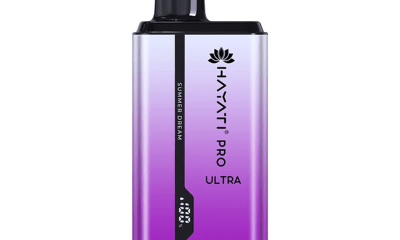Education
Questions That Every Education Consultant Should Be Able to Answer

Being an education consulting is a tough job, with a lot of responsibilities. In addition, an educator must have a large amount of knowledge about the teaching and learning process to be effective. In this piece, we will look at questions that an effective education consultant (collegeGPA calculator) should be able to answer.
What is a Classroom Reinforcement System?
This is a reinforcement-based system that uses positive reinforcement methods to encourage students to behave in an appropriate manner. The goal is to associate these behaviors with positive emotions so that the behavior stays with the children both in and out of the classroom.
What is Content Scaffolding?
This refers to a teaching strategy that involves teaching material that is not too difficult for learners that are learning a new skill. By starting off with relatable and easy lessons, learners won’t feel overwhelmed by the content and will be able to focus on the skill they are learning.
What is Cued Speech?
Cued speech is a speech reading method that aids people with hearing impairments. It involves the use of hand signals to support and enable people (high school GPA calculator) with hearing impairments to accurately read lips.
What are Cued-Language Transliterators?
These are the professionals who translate speech for learners using cued speech.
What are Cued Speech Transliterators?
They help learners with speech reading by using hand shapes, hand placements and mouth movements to represent the phonemes of spoken language.
What is Curriculum Omission?
This is information that is deliberately omitted from the curriculum. This is usually a result of the false beliefs by instructors that the learners will be taught certain topics in the future.
What is Curriculum Overload?
This is a situation where the content that is to be taught to learners is too large to be covered in the timeframe provided to the instructors(cumulative GPA calculator).
What is Deaf Culture?
These are the structures relating to the deaf community, structures such as dance, language, theatre etc. These structures are unique to the deaf community and are usually taught at schools.
What is Deafness?
This is a condition where an individual’s hearing is impaired to the point that they cannot perceive sounds and speech.
What is Deafblindness?
This is a disability that affects both the vision and hearing of a person. Most people (grade calculator) with this condition also experience other physical, medical and cognitive problems.
What is Deinstitutionalization?
This is a process aimed at reducing the overall number of disabled individuals living in large congregate facilities in order to decrease segregation.
What is Developmental Bilingual Education?
This is a language instruction method that involves the provision of academic materials to ELLs in their native language. This is also known as the late-exit bilingual program and bilingual teachers operate in conjunction with the school to fully assimilate ELL learners and native-English speaking learners into such programs.
These programs often run for as long as six years and don’t get stopped until the approved runtime, even if the learners fully grasp the English (weighted grade calculator)language.
What is Direct Instruction?
This is a teaching method which involves the use of direct and clear language to create a desired academic goal. The content that is taught is usually scripted.
What is a Discrepancy Formula?
This is a formula that is created by state educational agencies that are used to accurately identify the actual progress of a learner by taking factors that are unique to that specific learner (final grade calculator)into consideration.
What is a Discrepancy Score?
This is used by states to decide which individuals are competent enough to take on roles designed to support learners with learning disabilities.
What question did I leave off?
Education
Applying to an English course in Birmingham: Tips and Advice


Are you considering studying English courses in Birmingham?
If so, you’re about to begin an exciting journey in language learning and cultural exposure. To ensure that your application process is smooth and successful, here are some valuable tips and advice to guide you through.
1. Research Your Options
Before you begin your application, the obvious step is to investigate your selections among the best English courses in Birmingham.
Investigate other institutions, their courses, teaching techniques, and student feedback. Consider the class size, course duration, and specialist areas of study in the English language programme.
To learn more about English courses in Birmingham, visit the websites of local universities and language schools.
- Compare course curriculums, costs, and other support services offered.
- Ask current or previous students about their experiences.
2. Understand the Application Requirements
Each English course in Birmingham may have different application requirements. Criteria such as language proficiency tests, academic credentials, recommendation letters, or personal statements.
Before submitting your application, be sure you understand the prerequisites and meet all of the admission criteria.
Tips for Meeting Application Requirements.
- Take language competence tests, such as IELTS or TOEFL, if necessary. (Typically, students from non-English backgrounds/nations must take an English language competence test to be admitted.)
- Contact teachers and mentors ahead of time to request recommendation letters.
- Write a convincing personal statement of purpose essay highlighting your passion and motivation for studying English at Birmingham.
3. Submit a Well-Crafted Application
When drafting your application, pay close attention to detail and make sure it represents your real interest in studying English. To increase your chances of admission, submit all needed documentation on time and precisely.
Strong application components include:
A strong application should include a clear and concise personal statement that reflects motivation and ambitions.
• Provide official transcripts and certifications to demonstrate your academic history.
• Provide thoughtful recommendation letters that reflect your skills and abilities.
• Check all documents for grammar and spelling mistakes before submitting.
4. Seek Scholarships and Financial Aid
Studying abroad can be costly at times, but don’t let that stop you from pursuing your aspirations.
Look at scholarship, grant, and financial aid options for international students applying to English classes in Birmingham.
International students can find funding opportunities through scholarships granted by universities, government agencies, and private institutions.
- Inquire about work-study or part-time career opportunities in Birmingham.
- Consider alternate money sources such as savings, loans, or crowdsourcing platforms.
5. Stay Positive and Persistent
The application process for an English course in Birmingham may be competitive, but don’t let that discourage you. Stay positive, be patient, and remain persistent throughout the application timeline. Remember that each step brings you closer to achieving your academic goals.
In conclusion, applying to English courses in Birmingham can be a rich experience that opens doors to new career opportunities and personal growth.
By following these tips and advice, you can navigate the application process with confidence and set yourself up for success in your academic journey. Consider enrolling today to get your journey started!
Education
High School Internships: Building Blocks for Your Future


Internships for high school are more than a mere tick on a resume. Today, they lay the foundational blocks toward a more considered and well-planned future. Navigating school years is a formidable challenge for students. However, the journey can be enriched with valuable lessons and skills acquired through internships.
Real-world Exposure:
- Internships provide high school students with a taste of working life outside the academic bubble. They offer an escape from textbooks and classrooms, presenting potential career paths to explore. This real-world exposure is invaluable for students trying to identify their early interests and passions.
Skill Development:
- Beyond textbook learning, internships offer practical application of skills. From communication and problem-solving to technical abilities, students gain hands-on experience that extends beyond traditional educational boundaries.
College Admissions Advantage:
- In the competitive race for college admissions, internships can be a significant advantage. They demonstrate to admissions officers a proactive, action-oriented approach to learning and success.
Start Early:
- Starting internships early can lead to greater success. While some programs are tailored specifically for high school students, providing a structured introduction to the working world, others span various fields like business and bio-medicine. This early exposure smooths out the transition from academic concepts to career realities.
Leverage Networking:
- Networking is crucial in career building. Internships offer high school students opportunities to connect with professionals in their field of interest. These connections can provide mentorship and valuable insights for future career endeavors.
Tailor Internships to Career Goals:
- It’s important for students to seek internships aligned with their career goals. Whether in STEM, arts, or business, targeted internships offer more focused and relevant experiences. Colleges look beyond academic scores, valuing the ability to apply theoretical knowledge in practical settings. High school internships provide a tangible demonstration of a student’s active engagement in learning and development.
Standout Applications:
- Internships enhance college applications by showcasing practical skills acquired outside the standard curriculum. These experiences make applicants stand out to admissions officers.
Demonstrating Initiative:
- Internships reflect a student’s capacity to tackle challenges and take initiative. This quality is highly valued in the college admissions process, indicating an active and dynamic approach to learning and personal development.
Insight into Chosen Field:
- For students with clear career objectives, internships provide hands-on experience in their chosen field. This direct exposure aids in making informed decisions about college courses and future professions.
Finding the Right Internship: Advice from College Admissions Experts
Embarking on a high school internship journey involves selecting the right opportunity, navigating the first day, and adapting to different professional environments.
Research Opportunities:
- Students should thoroughly research internship opportunities. Many organizations offer programs specifically designed for high school students, providing a more structured experience than self-directed options.
Seek Guidance:
- Consulting with knowledgeable counselors, such as those from IVY’D, who have experience and insights into specific internship programs, is beneficial. Their team of Ivy League graduates and admissions advisors can guide students towards internships that align with their academic, personal, and professional goals.
Leverage Resources:
- IVY’D focuses on empowering communities and individuals. They offer free college preparation workshops for nonprofits, libraries, and schools, providing students with the guidance needed to pursue higher education.
Conclusion:
Internships for high school are not just about ticking a box; they represent an investment in personal and professional growth. These experiences lay the groundwork for success in education and beyond, helping young individuals find their passion and interests. The high school internship process grants invaluable experiences, develops coping skills, and provides insightful perspectives, setting students on a path to a brighter, more informed scholarly and professional future.
Education
Decoding 2024’s Hydration Trends: Alkaline Water Vs. Hydrogen Water


In a world where health and wellness are increasingly becoming top priorities, staying hydrated has never been more critical. We’ve come a long way from simply quenching our thirst with tap water or the occasional bottled water. Today, the hydration market is flooded with various options, each claiming to offer unique benefits. Among the emerging trends in the realm of hydration, two stand out: Alkaline water and Hydrogen water.
Alkaline Water: The Basics
The pH level of alkaline water is higher than that of normal tap water. It is usually between 8 and 9 on the pH scale. Some ways to get this high pH are through ionization or adding alkaline minerals like magnesium, calcium, and potassium.
The Science Behind Alkaline Water
Proponents of alkaline water argue that it can help balance the body’s pH level, which tends to be slightly acidic. They believe that by drinking alkaline water, you can reduce the acidity in your body, potentially preventing various health issues.
Our body’s pH level is tightly regulated, and deviations from the norm can be detrimental to health. However, the body has a robust buffering system that helps maintain a stable pH within a narrow range. Skeptics argue that drinking alkaline water has minimal impact on the body’s pH, as the stomach is highly acidic to aid in digestion. When you consume alkaline water, it passes through the stomach, where the acidic environment quickly neutralizes it, making its effects on overall body pH limited.
Purported Benefits of Alkaline Water
Hydration: Because its molecules are less clumped together, alkaline water is thought to be easier for the body to absorb. But there isn’t a lot of solid evidence to back up this claim.
Antioxidant Properties: Some alkaline water enthusiasts claim that it possesses antioxidant properties due to its negative oxidation-reduction potential (ORP). Free radicals and oxidative stress can be fought with antioxidants, which may lower the chance of getting chronic illnesses.
Better Bone Health: Calcium and magnesium are chemicals that are important for bone health that are found in alkaline water. Some people say that drinking alkaline water can help keep bones from breaking.
Improved Digestion: Some people believe that alkaline water can help digestion by eliminating too much stomach acid and easing the signs of acid reflux.
Hydrogen Water: The Basics
Hydrogen-rich water, which is another name for hydrogen water, is water that has molecular hydrogen (H2) gas added to it. Molecular hydrogen is a gas that has no color or smell and has gotten a lot of attention because it might be good for your health.
The Science Behind Hydrogen Water
The concept behind hydrogen water is based on the idea that molecular hydrogen acts as a powerful antioxidant. It is believed to have the ability to neutralize harmful free radicals, reducing oxidative stress and inflammation in the body.
Hydrogen’s small molecular size allows it to penetrate cell membranes and enter the cellular compartments, where it may have a therapeutic effect. It’s thought to selectively target the most harmful free radicals, such as hydroxyl radicals, without interfering with essential signaling molecules in the body.
Purported Benefits of Hydrogen Water
Antioxidant Properties: Hydrogen water is praised for its potential to combat oxidative stress, which is implicated in various chronic diseases, including cancer, diabetes, and neurodegenerative disorders.
Improved Athletic Performance: Some studies suggest that hydrogen water may enhance physical performance by reducing muscle fatigue and promoting faster recovery.
Brain Health: Because hydrogen can pass through the blood-brain barrier, some people think it may have neuroprotective benefits that lower the chance of cognitive loss and neurodegenerative illnesses.
Skin Health: Hydrogen water is claimed to have benefits for skin health, with proponents suggesting it can reduce wrinkles, improve skin hydration, and promote a more youthful appearance.
The Debate: Alkaline Water vs. Hydrogen Water
As we’ve looked into the science and supposed benefits of both alkaline water and hydrogen water, it’s important to note that scientists are still arguing about how well they work.
Alkaline Water Debate
Critics of alkaline water argue that the body’s pH regulation is a highly complex and tightly controlled process. The body maintains a slightly acidic pH in the stomach to aid digestion, while the blood and other tissues have a stable pH range. Drinking alkaline water may have limited impact on these systems, as the body compensates for any pH fluctuations.
Furthermore, the scientific evidence supporting the health benefits of alkaline water is limited and often inconclusive. While some studies suggest potential benefits, many are small in scale, and more robust research is needed to draw definitive conclusions.
Hydrogen Water Debate
On the other hand, the best hydrogen water machine has garnered more interest from the scientific community due to its potential antioxidant properties. Several studies have explored the effects of hydrogen-rich water on various health markers, and while the results are promising, more research is needed to establish its effectiveness definitively.
One challenge in the hydrogen water debate is determining the optimal concentration of hydrogen for therapeutic effects. Too much hydrogen may have limited benefits, while too little may not yield any noticeable effects.
Considerations for Making a Choice
When considering whether to incorporate alkaline water or hydrogen water into your hydration routine, several factors should guide your decision:
Personal Health Goals: Assess your specific health needs and goals. If you are primarily concerned with reducing oxidative stress, hydrogen water may be more aligned with your objectives.
Taste and Preference: Some people prefer the taste of alkaline water over regular tap water, which may encourage increased hydration. Hydrogen water typically has no distinct taste.
Scientific Evidence: Keep in mind that both alkaline water and hydrogen water have limited conclusive scientific evidence supporting their benefits. Therefore, it’s essential to approach these options with a degree of skepticism.
Cost and Accessibility: Consider the cost and accessibility of these products in your area. Alkaline water may be more readily available, while hydrogen water may require specialized equipment or hydrogen tablets.
Consult a Healthcare Professional: A healthcare expert or nutritionist can give you personalized advice based on your health state and goals before you make any big changes to how you stay hydrated.
The Bottom Line
As of 2024, more specific ways to stay hydrated, such as alkaline water and hydrogen water, are becoming popular. Although these drinks seem like they might be good for you, it’s important to look at them with a critical eye and think about your own health goals and wants. It’s important to remember that healthy food and way of life are still the best ways to stay healthy generally. Staying hydrated is essential, but the choice between alkaline water and hydrogen water should be made with care and awareness of the available scientific evidence. Ultimately, the best hydration choice for you may be the one that aligns with your preferences and complements your overall health and wellness strategy.
-



 Biography5 years ago
Biography5 years agoJacqulyn Elizabeth Hanley is the Mother of Liza Soberano?
-



 Home4 years ago
Home4 years agoEpson L3110 Driver Free Download Latest Updated Version
-



 Games3 years ago
Games3 years agoBest Free To Play MMORPG To Try This 2021
-



 Biography5 years ago
Biography5 years agoAmanda Levy Mckeehan Biography, Family, Net Worth, Age, Affairs, Facts
-



 Biography5 years ago
Biography5 years agoWho is Rose Dorothy Dauriac? Scarlett Johansson Daughter?
-



 Biography5 years ago
Biography5 years agoJessica Ditzel Secret Information that Nobody Knows | Joe Rogan’s Wife
-



 Biography5 years ago
Biography5 years agoWhat is the relation of Nathaniel Larry Osorno with Liza Soberano?
-



 Home5 years ago
Home5 years agoLiza Soberano Biography, Age, Family and Boyfriends































